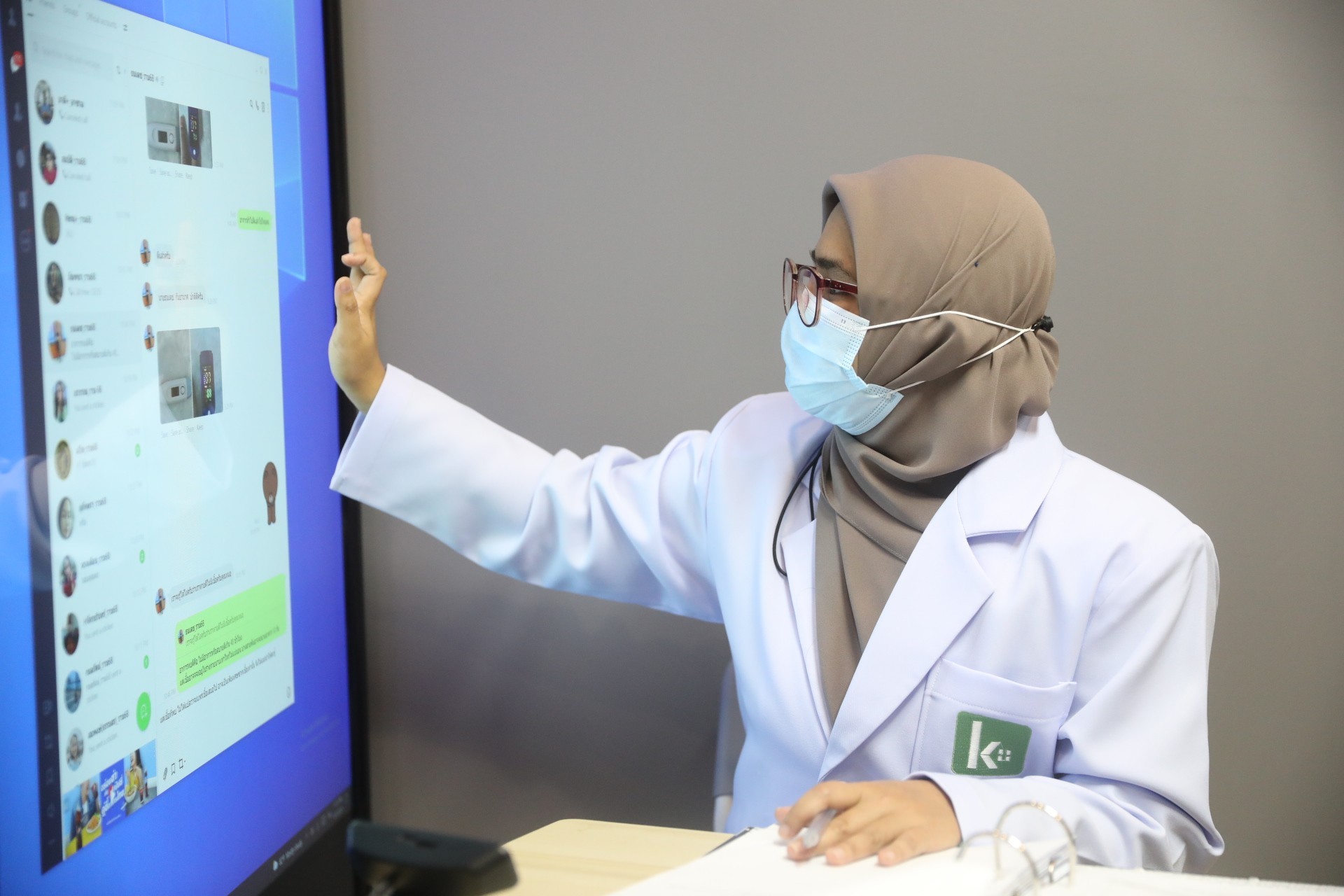
- Home
- DescriptionNews
Private hospitals join the effort to provide medical care to COVID-19 patients

Private hospitals join the effort to provide medical care to COVID-19 patients
Over a hundred private hospitals have collaborated with the National Health Security Office (NHSO) to provide medical care to asymptomatic and mild-symptom coronavirus patients.
On Mar 8, the cabinet approved the Ministry of Public Health's proposal to withdraw asymptomatic and mild-symptom coronavirus patients from Universal Coverage for Emergency Patients (UCEP)a program that allows critical patients to admit to any hospital regardless of their registry hospitals.
During the height of the pandemic, the government made coronavirus patients eligible for UCEP to save people's lives and contain the spread of the virus. However, the recent surge of Omicron cases is different from the previous coronavirus waves that harm the majority of infection cases.
Currently, more than 90% of people with positive test results are asymptomatic or have mild symptoms, meaning they don't need intensive care at hospitals.
These patients are classified as 'green' cases, which can be treated at home and in community isolation facilities under the doctors' guidance.
The intermediate and critically-ill patients are classified as 'yellow and 'red,' respectively.
They require intensive care hospitals' inpatient wards, prompting the Ministry of Public Health not to withdraw them from UCEP's eligibility list.
Though green cases are not eligible for UCEP, the NHSO has worked closely with the Ministry of Public Health and healthcare scheme operators to ensure the patients' access to medical consultation and treatment.
Since early Apr, the NHSO has collaborated with private hospitals to launch a new initiative that allows patients under the green category to request medical consultations, medicine, and necessary assistance from private hospitals regardless of the patient's registry hospitals.
More than 100 private hospitals have participated in this effort. Beneficiaries of Civil Servant Medical Benefits and local administrative organizations' healthcare are eligible to get private hospitals' care under the initiative.
The eligible patients must meet the criteria, such as having a high body temperature (more than 37.5°C) and loss of smell and taste, sore throat, cough, running nose, or other relevant symptoms, including rash, diarrhea, or red eyes.
If the patients visit the outpatient ward, the NHSO will pay private hospitals 1,000 baht per case covering medical consultation, medicine (green chiretta, favipiravir and relevant drugs), health workers' time spent on monitoring patients (the first 48 hours after they report themselves at hospitals' outpatient department) and transport from home to hospitals if the patients' conditions worsen.
The NHSO will top up 300 baht to cover the hospitals' coordination fee if patients' symptoms worsen and request intensive care at hospitals.
If the patients must isolate at home, in community facilities or hospitel, the NHSO will cover the overall cost in a lump sum 6,000 baht for a patient who requires no more than six days of care, and 12,000 for one who needs more than seven days of care.
The coverage includes patients' food (3 meals a day), medicine, medical consultation and devices, chest X-rays if necessary, and health workers' hours spent on monitoring patients.
.jpg)
"We appreciate the helping hands from private hospitals. If players in the health system collaborate across organizations, patients will benefit the most by accessing quality and timely care," said the NHSO Secretary-General Dr Jadej Thammatacharee.
"Our collaboration with private hospitals will also reduce hospital crowding, as it makes patients feel confident about getting good care at home and isolated facilities."
Check the list of private hospitals joining the initiative at https://www.nhso.go.th/page/privatehospital_green, or contact the NHSO 1330 contact center or add the NHSO Line ID @nhso for more information.

